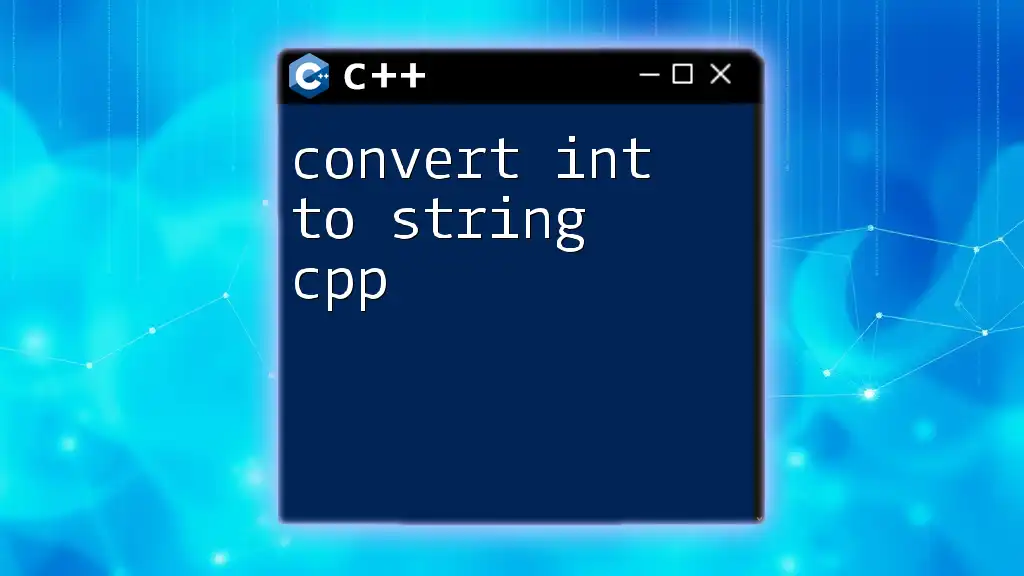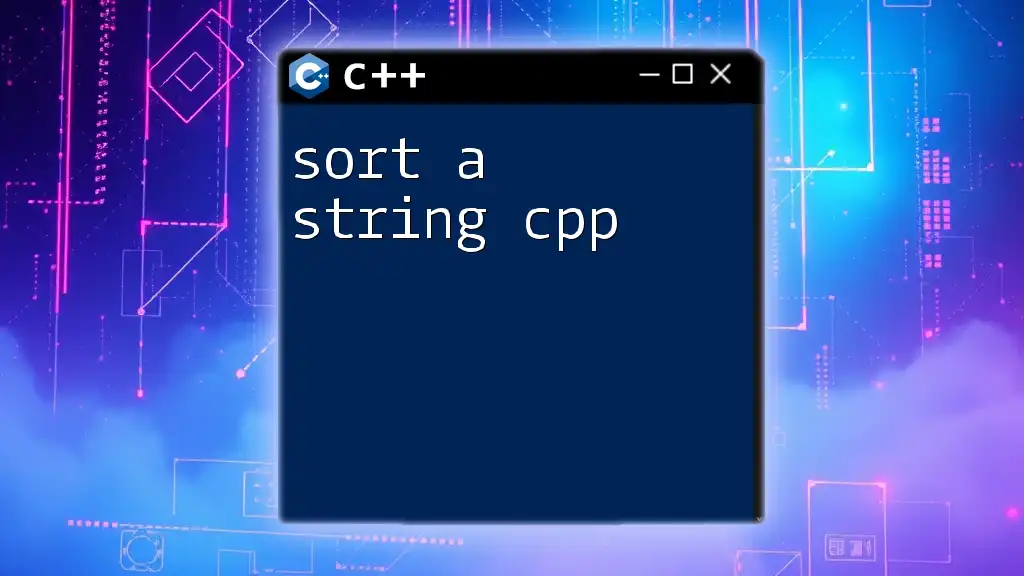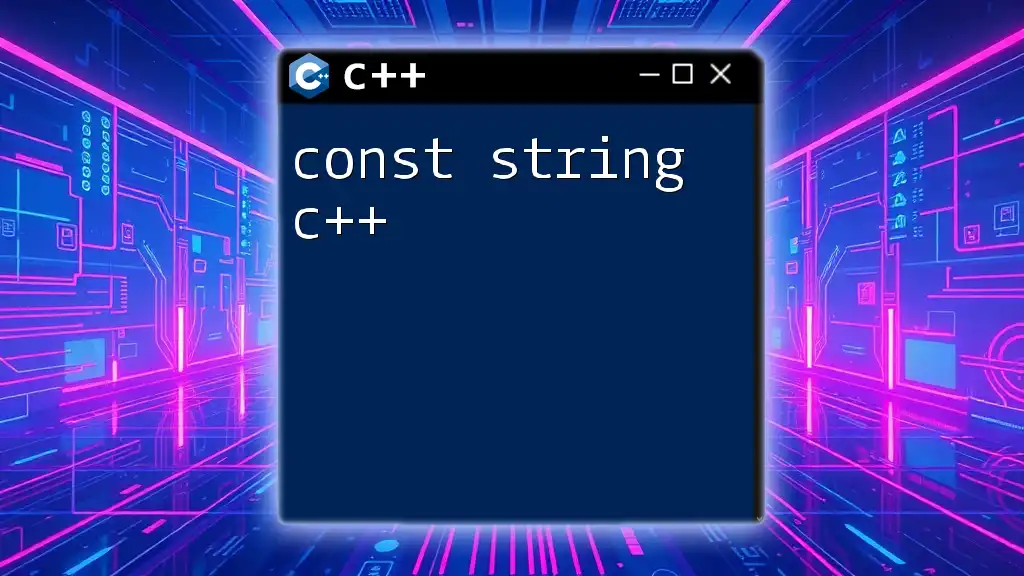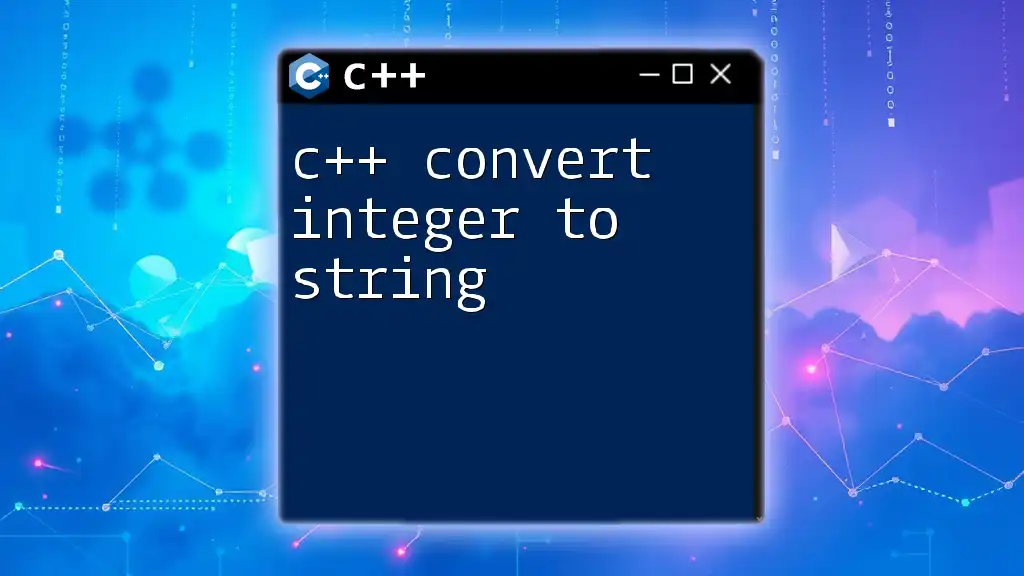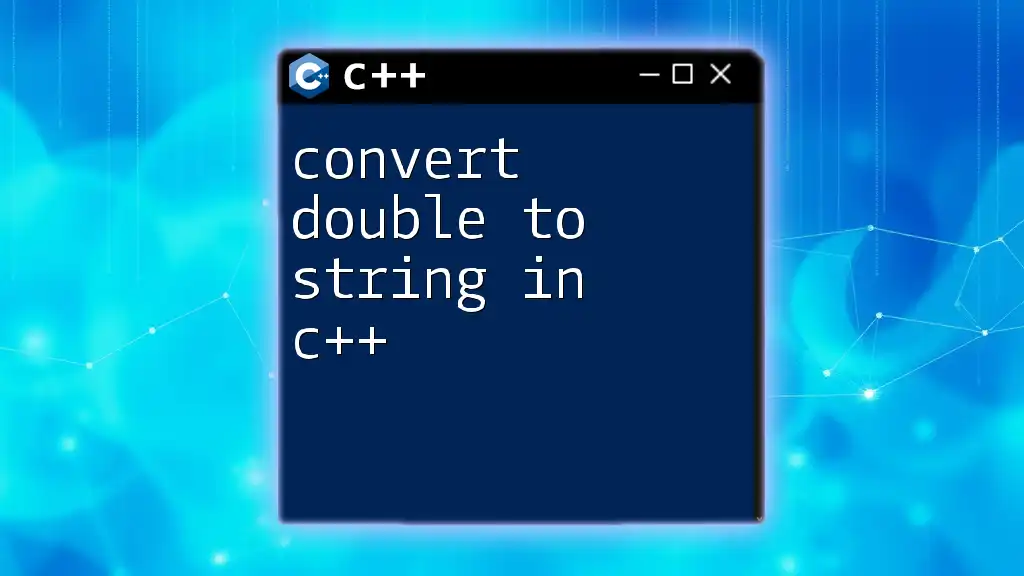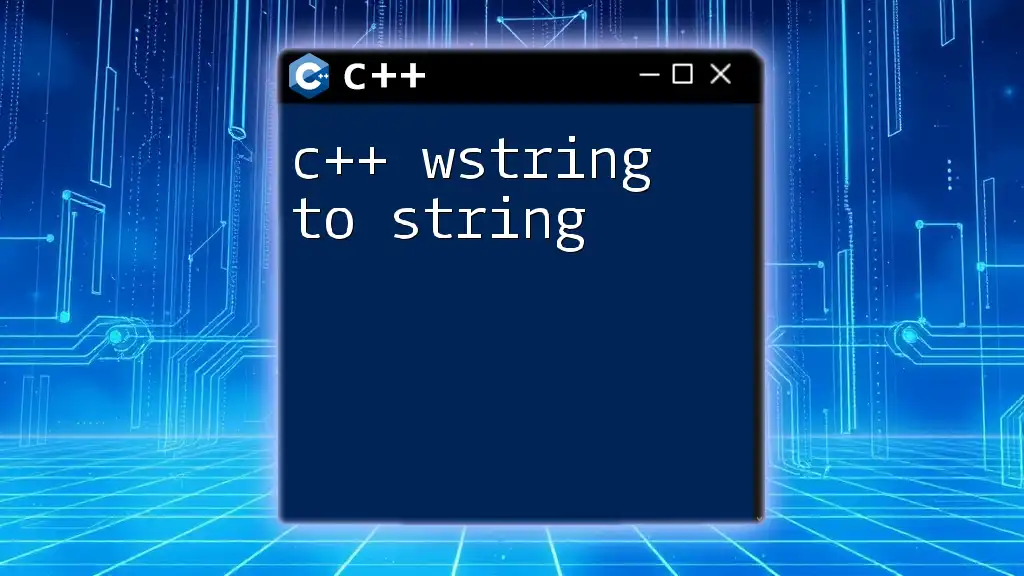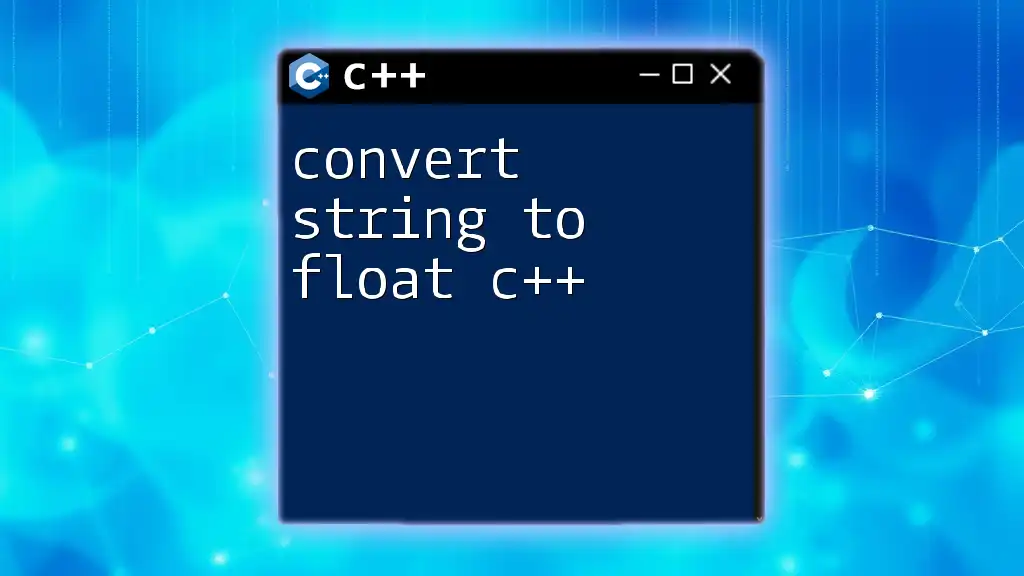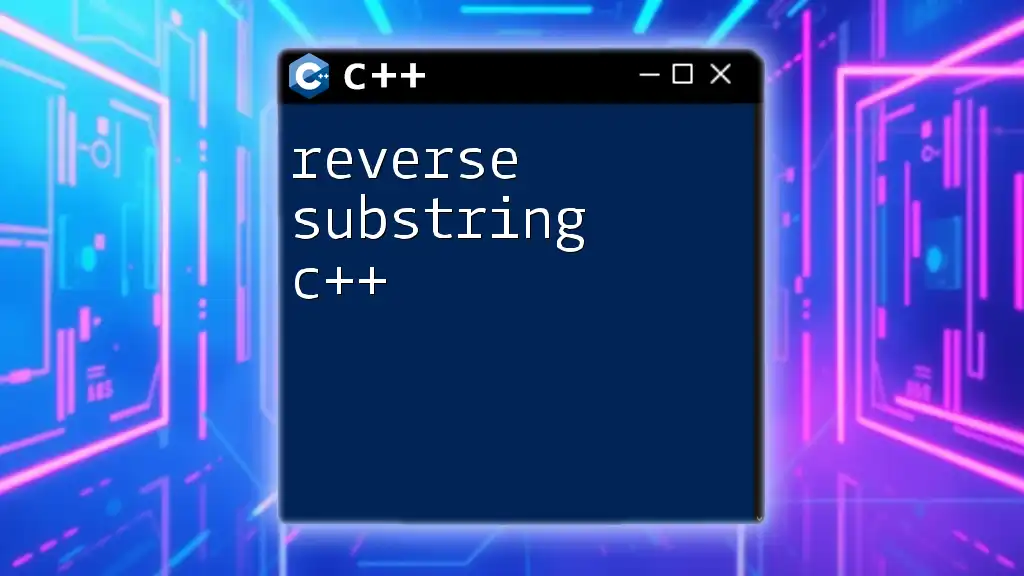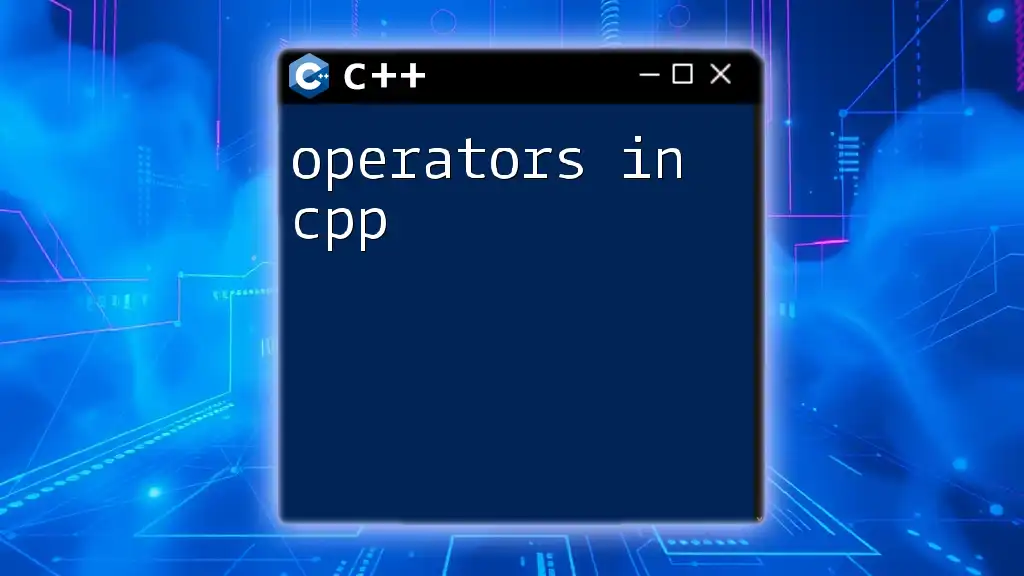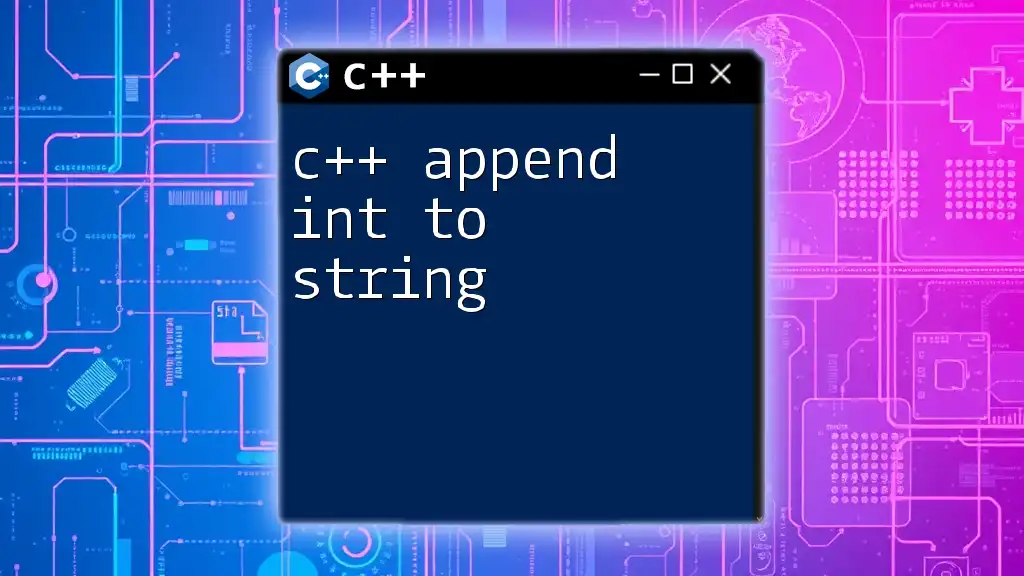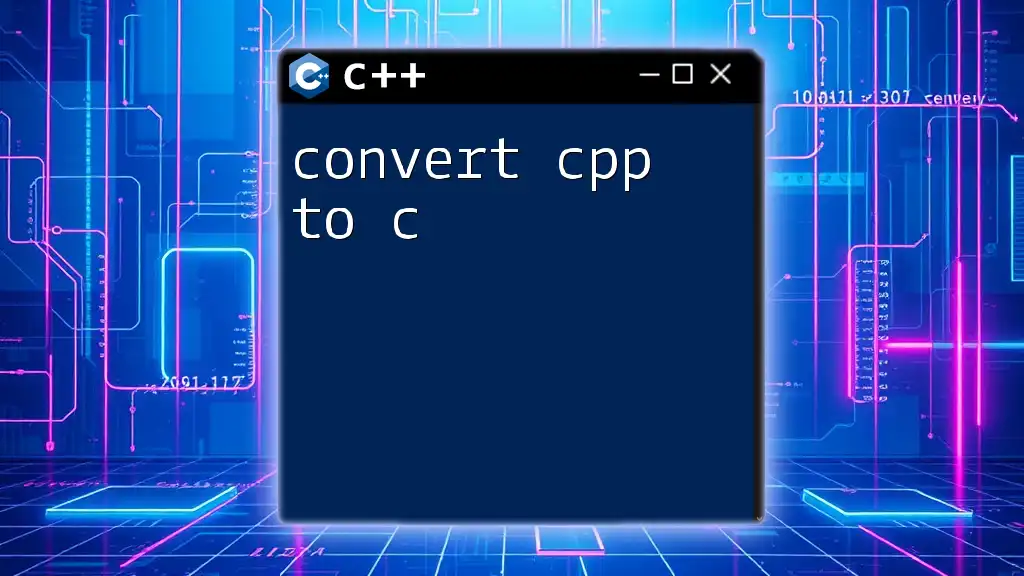In C++, you can convert an `int` to a `string` using the `std::to_string` function from the standard library. Here's a quick example:
#include <iostream>
#include <string>
int main() {
int num = 42;
std::string str = std::to_string(num);
std::cout << str; // Output: 42
return 0;
}
Understanding Integer to String Conversion
What is Integer to String Conversion?
Integer to string conversion is the process of transforming numerical values (integers) into their string representations. This operation is fundamental in programming since it enables the manipulation and formatting of numeric data for various purposes, such as display output, file handling, and string concatenation.
Why Convert Int to String in C++?
Being able to convert integers to strings in C++ is essential for a variety of reasons:
- Display Outputs: Often, when displaying messages or error codes to users, strings are necessary for proper formatting.
- File I/O: When writing numeric data to files, it is essential to convert those numbers into strings to avoid type errors.
- User Interface Updates: Many UI frameworks accept only string inputs for display components. Thus, converting integers is crucial when updating a graphical interface with numerical data.
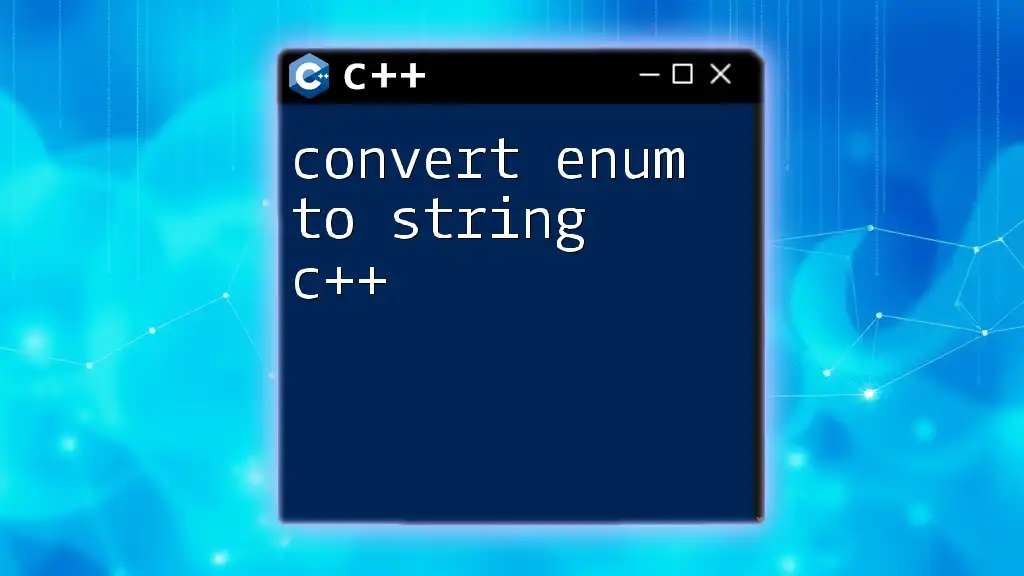
How to Convert an Int to String in C++
Method 1: Using `std::to_string()`
The `std::to_string()` function is a simple and direct way to convert integers to strings. This function is a part of the standard C++ library and is available in C++11 and later versions.
Syntax: The syntax is straightforward:
std::string to_string(int val);
Example: Here’s a quick example demonstrating its use:
#include <iostream>
#include <string>
int main() {
int num = 42;
std::string str = std::to_string(num);
std::cout << "The string representation is: " << str << std::endl;
return 0;
}
In this example, `num` is converted into a string representation `str`, which can then be utilized for various tasks such as display or further manipulation.
Method 2: Using `std::ostringstream`
Though `std::to_string()` is convenient, you can also use `std::ostringstream` for greater control over the conversion process. This method is particularly useful when you need to format the number in specific ways.
Step-by-Step Guide:
- Initialize an `std::ostringstream` object.
- Use the insertion operator (`<<`) to add the integer to the stream.
- Retrieve the string using the `.str()` method.
Example:
#include <iostream>
#include <sstream>
int main() {
int num = 42;
std::ostringstream oss;
oss << num;
std::string str = oss.str();
std::cout << "The string representation is: " << str << std::endl;
return 0;
}
In this situation, `oss` is the output stream where the integer is inserted, and `oss.str()` provides the converted string. This method is especially helpful when mixing types, such as appending additional text or formatting numbers.
Method 3: Using `sprintf` or `snprintf`
For those familiar with C-style programming, `sprintf` and `snprintf` functions can also be effective for conversion. While more manual and less safe than C++ methods due to potential buffer overflow risks, they offer flexibility for formatted output.
Example using `sprintf`:
#include <iostream>
#include <cstdio>
int main() {
int num = 42;
char buffer[50];
sprintf(buffer, "%d", num);
std::string str(buffer);
std::cout << "The string representation is: " << str << std::endl;
return 0;
}
In this code snippet, we use `sprintf()` to convert the integer into a C string format, placing it into a character buffer. This buffer is then used to initialize a `std::string` object.
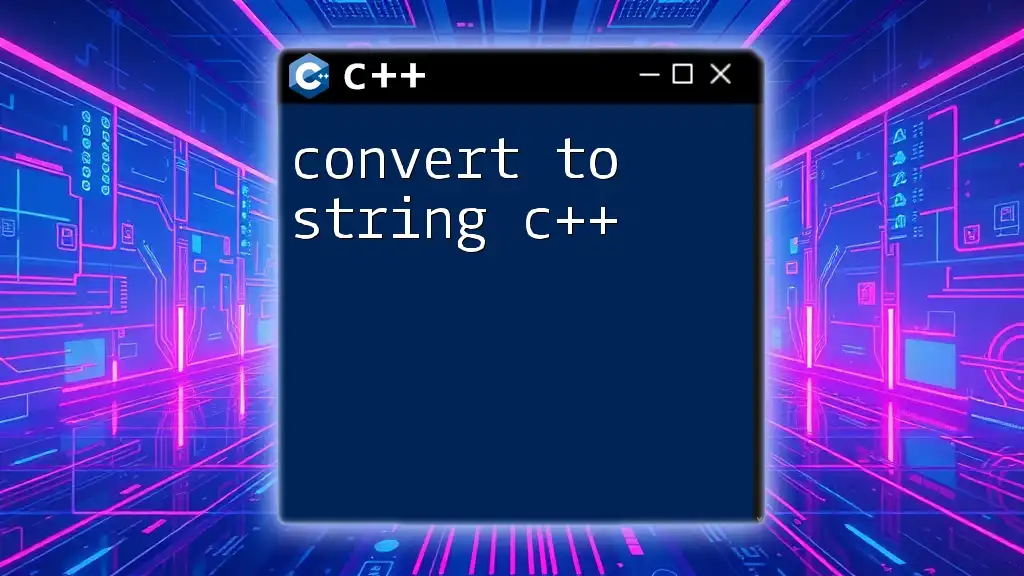
Comparing Methods of Conversion
Performance Considerations
When it comes to performance, `std::to_string()` and `std::ostringstream` are generally suitable for most scenarios, especially for small to medium-sized datasets. However, for heavy applications with numerous conversions, choosing `snprintf` can yield better performance, albeit at the cost of safety unless you manage buffers meticulously.
When to Use Which Method?
- Use `std::to_string()` when: You need a straightforward conversion with minimal formatting and you are working within modern C++ standards.
- Use `std::ostringstream` when: You require formatted outputs or intend to concatenate multiple types together.
- Use `sprintf` or `snprintf` when: You are working in a performance-critical application and are comfortable managing the formatting issues associated with C-string buffers.
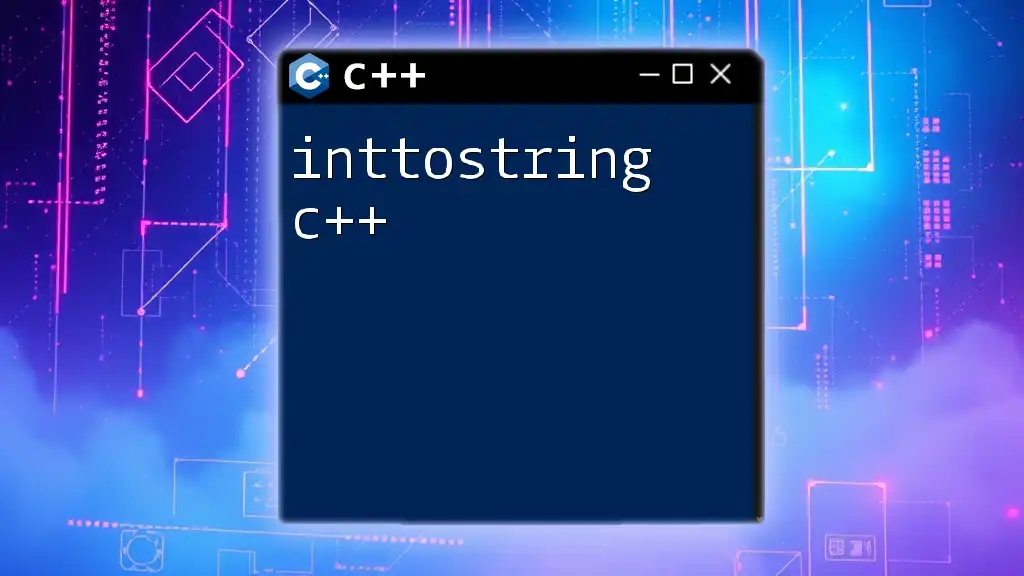
Example Use Cases
Use Case 1: Logging and Debugging
Integer to string conversion can be incredibly useful for logging and debugging, allowing developers to easily track error codes and numeric output.
Example:
void logMessage(int code) {
std::string codeStr = std::to_string(code);
std::cout << "Error Code: " << codeStr << std::endl;
}
In this function, any integer error code is converted into a string before it is logged, making the debugging process clearer and more user-friendly.
Use Case 2: User Interfaces
In user interfaces, displaying dynamic content can often require converting numbers to their string equivalents.
Example:
// Assuming a UI framework that accepts string input
updateLabel(std::to_string(userScore));
In this example, the `userScore` integer is converted and then used to update a label in a UI framework, ensuring the displayed score is always accurate and human-readable.
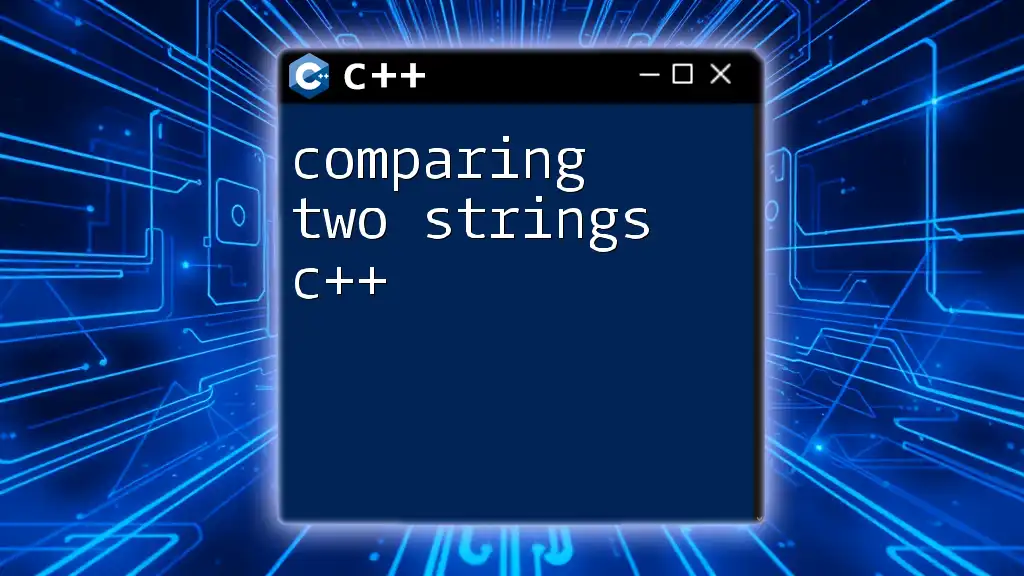
Common Errors and How to Avoid Them
Common Mistakes
When converting integers to strings in C++, some frequent mistakes include:
- Neglecting the Required Headers: Failing to include `<string>`, `<sstream>`, or `<cstdio>` can result in compiler errors.
- Improper Memory Management: When using C-style strings with `sprintf`, not allocating enough buffer space can lead to memory corruption or crashes.
Troubleshooting Tips
In cases where integer to string conversions fail or produce unexpected outputs, consider the following:
- Check that you are using an appropriate method for the data type.
- Use debugging tools or static analysis to identify potential buffer overflow issues.
- Ensure you are not mixing types incorrectly, which can lead to runtime errors.
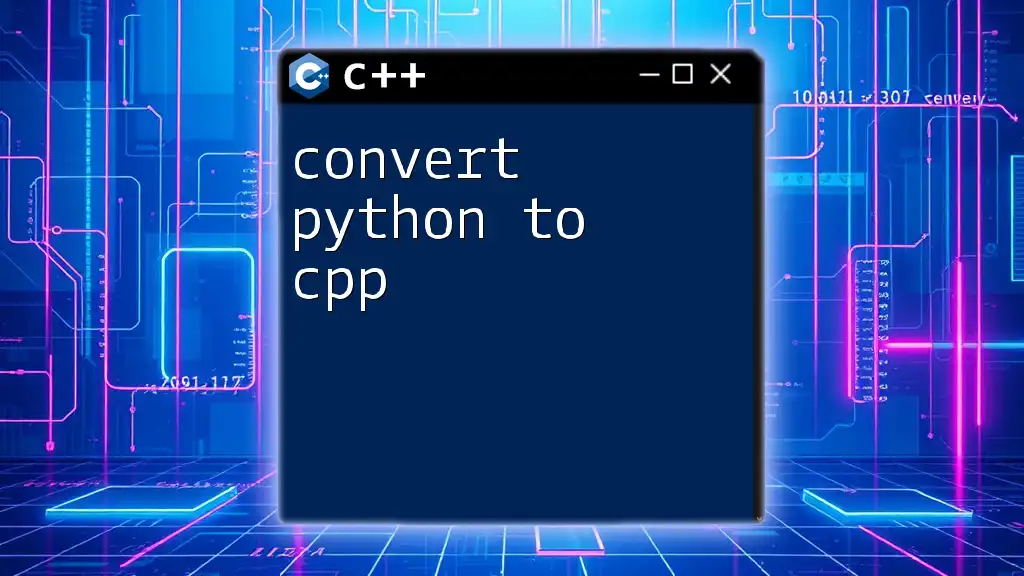
Conclusion
Converting integers to strings in C++ is essential for numerous programming tasks, from displaying values to handling input and output operations. Whether using `std::to_string()`, `std::ostringstream`, or C-style functions, each method has its advantages. As you become familiar with these techniques, you will enhance your ability to effectively manipulate and format numerical data in your applications.
Remember, practice makes perfect, so explore different methods and applications of converting integers to strings to deepen your understanding and skill in C++. To learn more about other string manipulations and programming tips, be sure to check out additional resources!
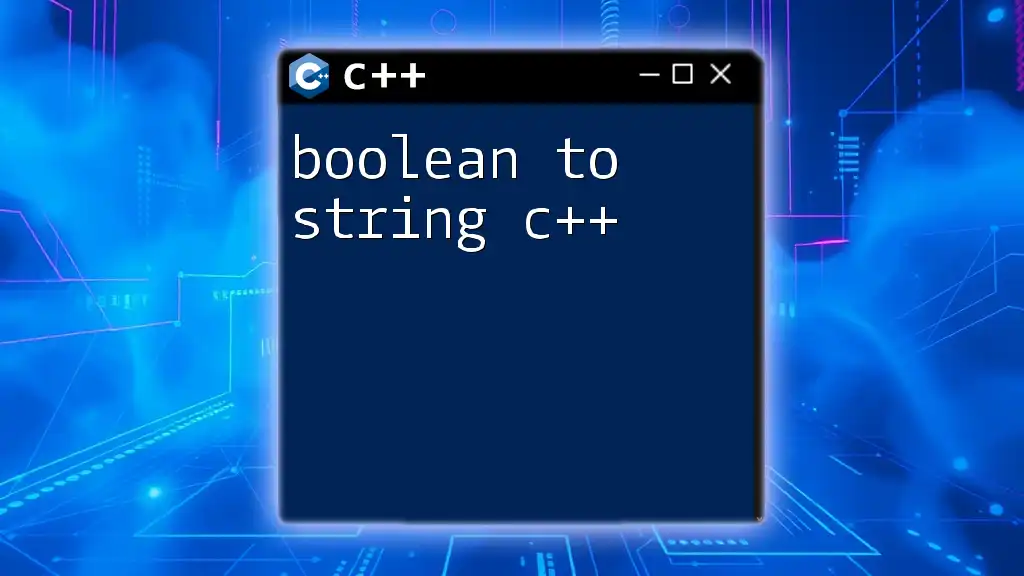
Additional Resources
For further reading on string manipulation and best practices in C++, consider exploring the official C++ documentation and community resources dedicated to C++ programming.

